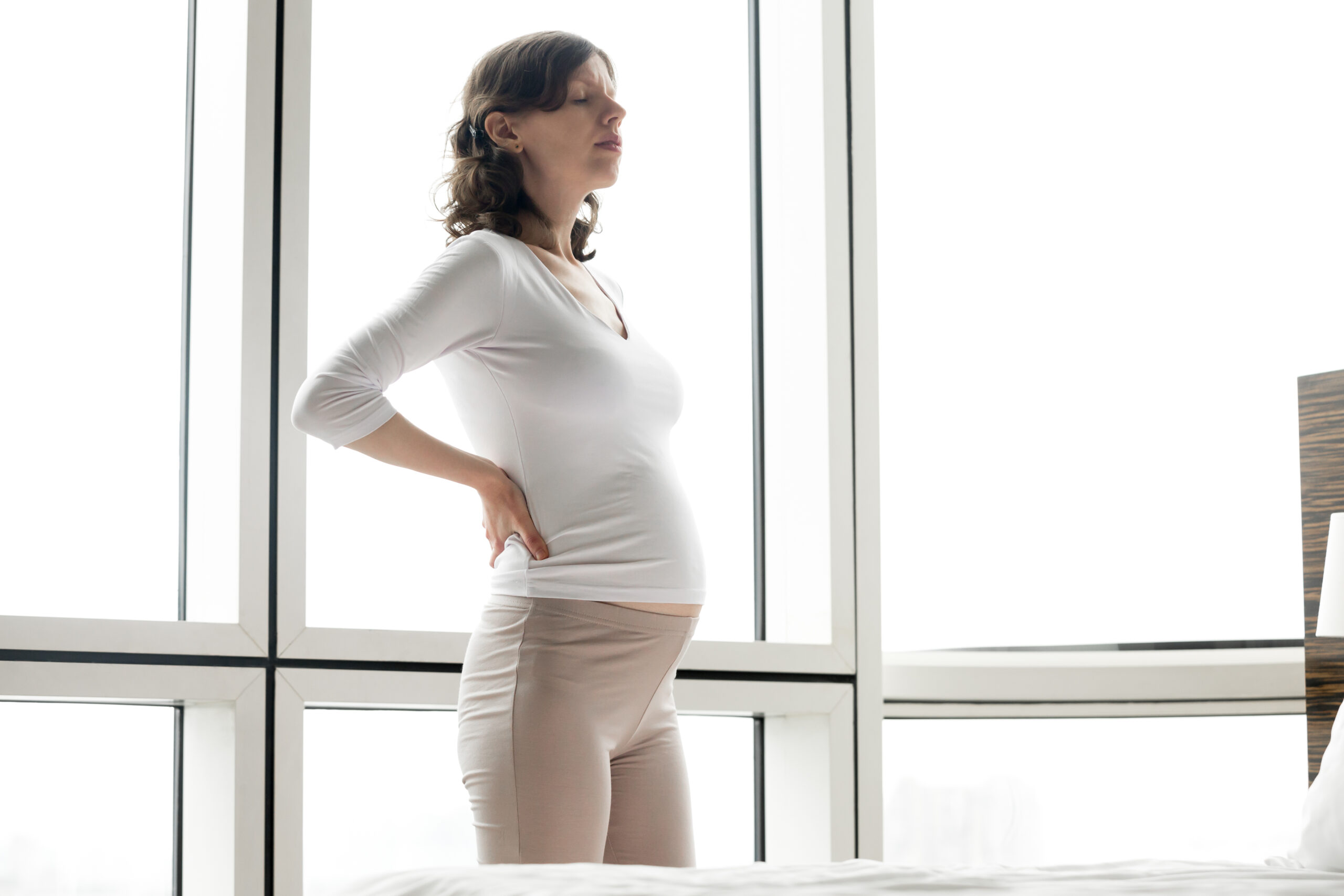
Back Pain During Pregnancy: Causes, Symptoms, and Treatment
By: Dr. Abe Kopolovich, DPT, MBA
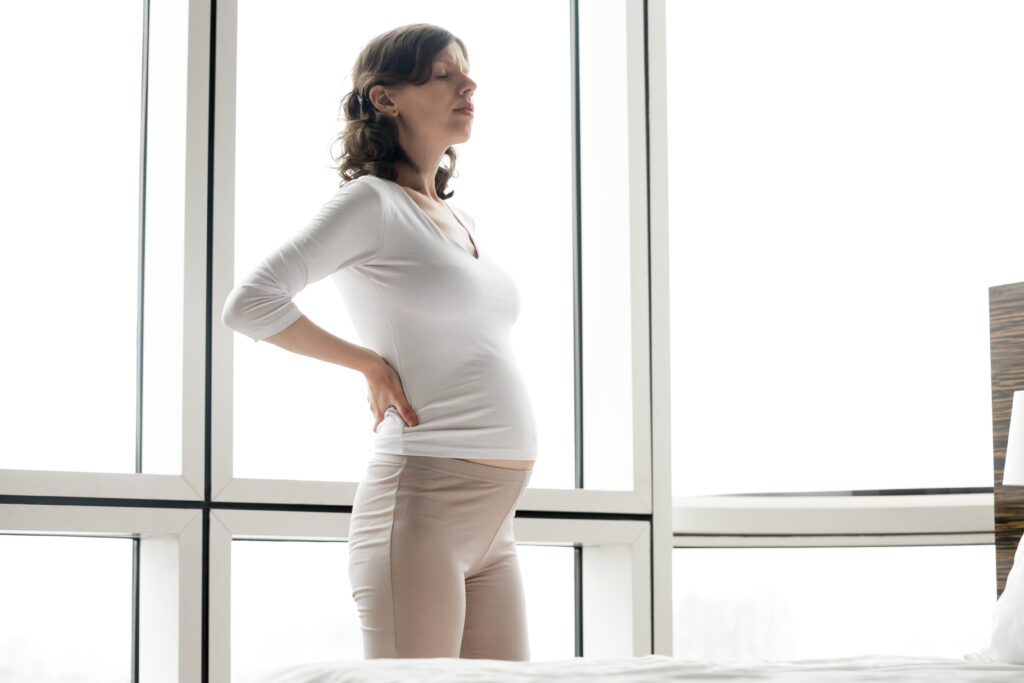
Many pregnant women often experience discomfort and terrible back pain during pregnancy, which can be particularly bothersome as it resembles the symptoms of sciatica, a condition characterized by pain radiating from the lower back down to the buttocks and legs. This blog post aims to offer comprehensive insights into the intricacies of lower back pain during pregnancy.
Recent research indicates that approximately 50-70% of pregnant women will suffer from lower back pain during pregnancy or postpartum. The pain can go from mild to severe, with about one-third of those affected experiencing significant discomfort that negatively impacts their quality of life.
Lower back pain typically becomes noticeable for most women between the 5th and 7th months of pregnancy. However, it’s worth noting that some may start experiencing it even earlier in their pregnancy journey. This discomfort can vary in intensity and duration, often as a common challenge during this transformative period of a woman’s life.
Symptoms of Pregnancy Back Pain
Understanding the various symptoms associated with a medical condition is crucial for accurate diagnosis and effective treatment.
These might include:
- A mild or sharp ache in the lower part of the back
- Pain in one side of the lower back
- Foot drop, which is the difficulty lifting the front of the foot while walking
- Pain similar to sciatic nerve pain, spreading into the thigh and leg. These symptoms become more frequent when there’s pressure on the lower back nerves, which can happen due to various conditions like a bulging disc, strained muscles, or muscle cramps.
- Lower back pain that worsens when lying down or sleeping is often caused by the growing uterus pressing on a major blood vessel called the vena cava and congestion of blood vessels in the pelvis and lower back.
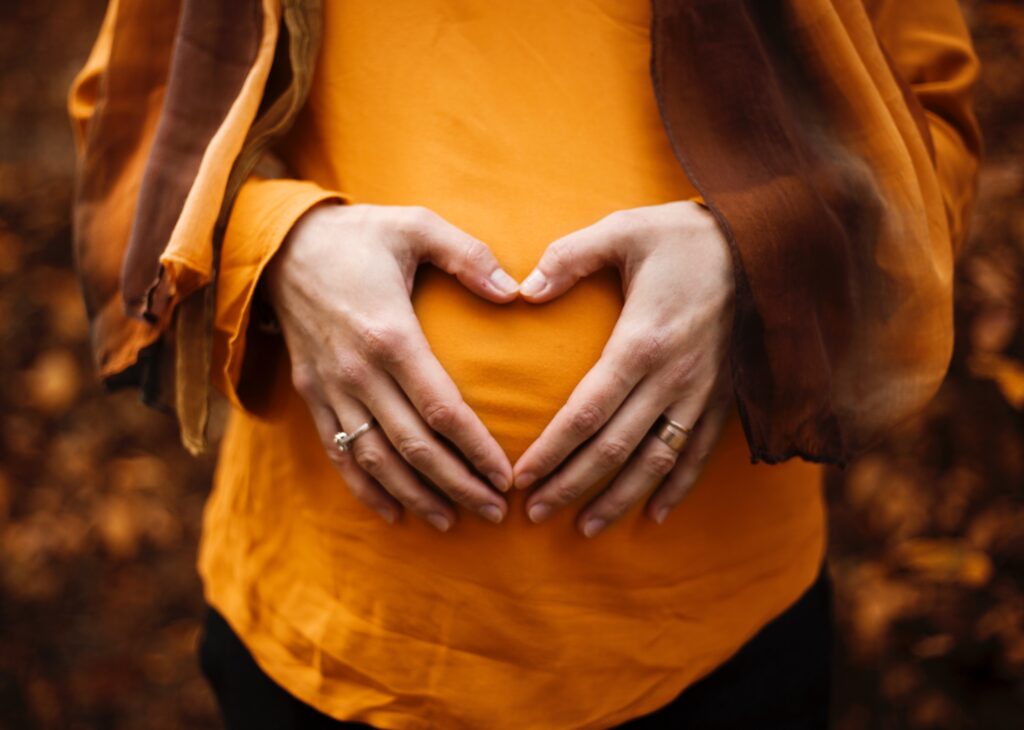
Causes of Back Pain During Pregnancy
Lower back pain during pregnancy happens for many reasons. It’s a mix of things that affect different parts of the lower body and make you feel uncomfortable. Some of these reasons are natural changes during pregnancy, like shifts in how you stand, blood flow, body structure, and hormones. It’s important to know that most of the time, lower back pain during pregnancy isn’t a big problem or something dangerous.
Some everyday actions while pregnant can worsen spine, pelvis, and hip movements. These actions could be walking or running, turning in bed, bending and twisting your back, picking up things, and going upstairs.
Though not common, pregnancy problems like miscarriage, ovarian cysts, or uterine fibroids might also cause back pain. Additionally, back pain might be a sign of a urinary tract infection or early labor.
Psoas Muscle
The psoas muscle links the upper body to the lower body. Its primary function involves bending the hip joint and raising the upper leg toward the torso. One of its most frequent actions is during walking.
Individuals with a history of experiencing low back discomfort or preexisting back issues appear to be at a heightened risk of developing lower back pain during pregnancy.
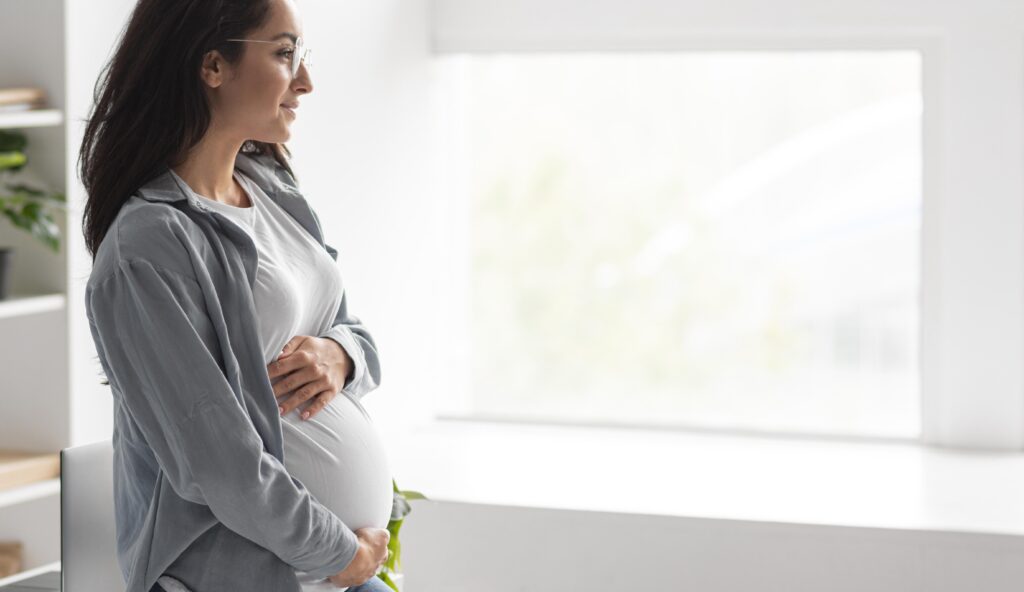
Moreover, apart from alterations in the body and a history of risk factors, some everyday activities during pregnancy can result in imbalanced movements in the spine, pelvis, and hips due to the natural changes that occur during pregnancy.
These activities may encompass:
- Walking or jogging.
- Shifting position while in bed.
- Bending and turning the spine.
- Lifting objects.
- Ascending stairs.
- Though uncommon, certain obstetric conditions like miscarriage, ovarian cysts, or uterine fibroids can lead to lower back pain during pregnancy.
Treatment for Bad Lower Back Pain
Treating lower back pain while pregnant depends on many things, like how far along the pregnancy is, why the pain is happening, other things making it worse, and any health problems like diabetes or high blood pressure.
Doctors usually check how you sit, move, and walk, if your joints hurt, how your tendons react, and how your lower spine curves to determine the best treatment for bad lower back pain.
Treatment goals often include:
- Keeping your body working well
- Making pregnancy easier on your body
- Improving how good your life feels
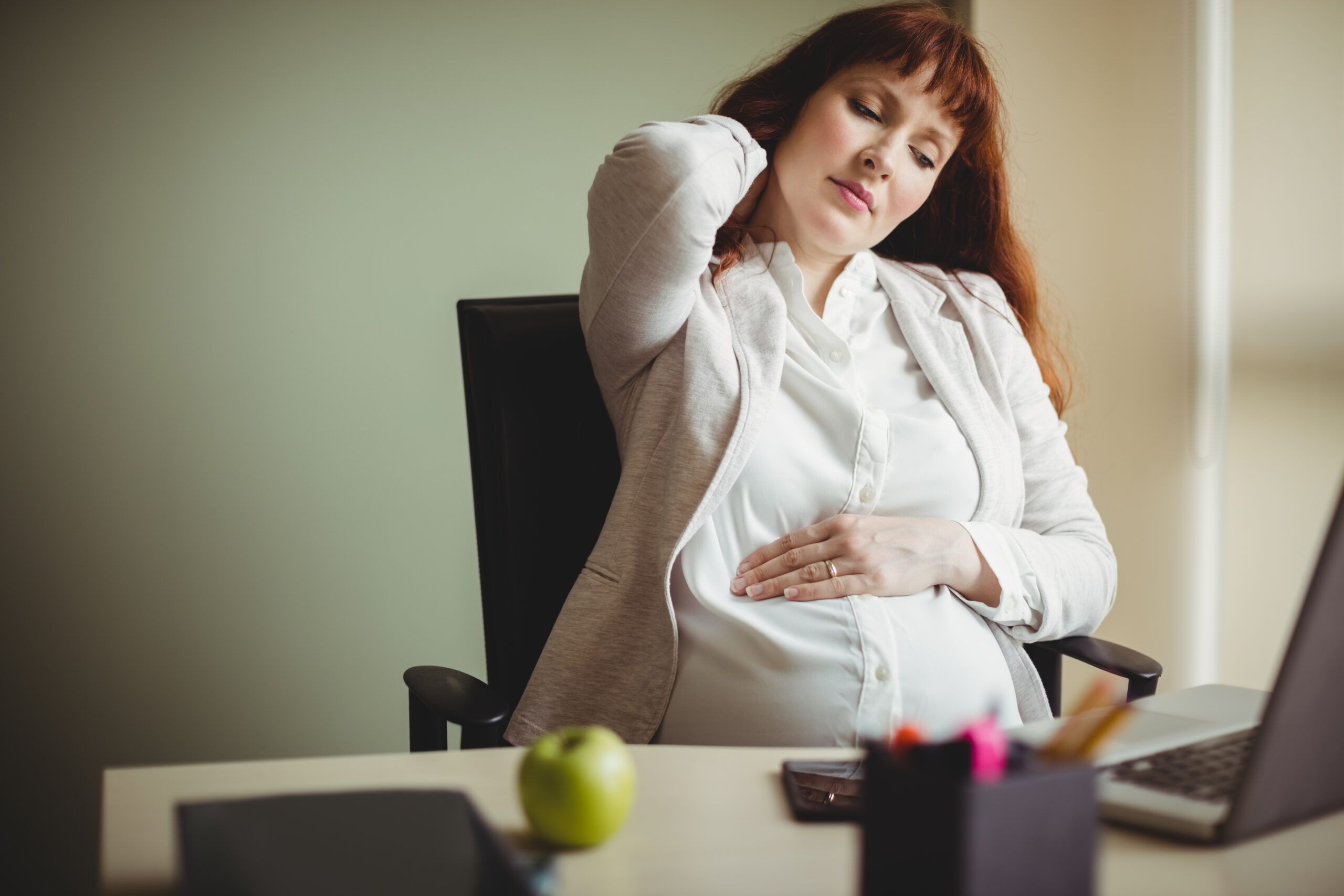
Physical Therapy and Exercises
Medical professionals, including doctors and physical therapists, can recommend specific physical therapy treatment for lower back pain to strengthen the lower back and alleviate the discomfort. Regular exercise can strengthen the lower back muscles, enhance flexibility, and reduce strain on the spine.
Safe exercises during pregnancy include walking, swimming, cycling, and low-impact aerobic exercises like using an elliptical trainer or stationary bicycle.
Hot and Cold Therapy
Using hot and cold on the sore spot can reduce pain and stiffness. Something hard, like ice or a cold pack, can be used by pregnant women on the painful area for about 20 minutes a few times daily. Switching between hot and cold treatments can help, too. They can also use a warm pad on the sore spot. Make sure to talk to a doctor to make sure it’s safe to use heat and cold when you’re pregnant.
Improving The Posture
Maintaining proper posture is crucial for reducing strain on the spine. Whether sitting or standing, avoiding slouching is essential. Using a pregnancy support belt can aid in maintaining better posture during pregnancy.
Sleep Adjustments
The best sleeping position during pregnancy is on the left side, as it promotes optimal circulation for the mother and growing fetus. Lying on the back can lead to various issues, including back pain. Pregnancy support pillows between the knees, behind the back, and under the growing belly can provide additional comfort.
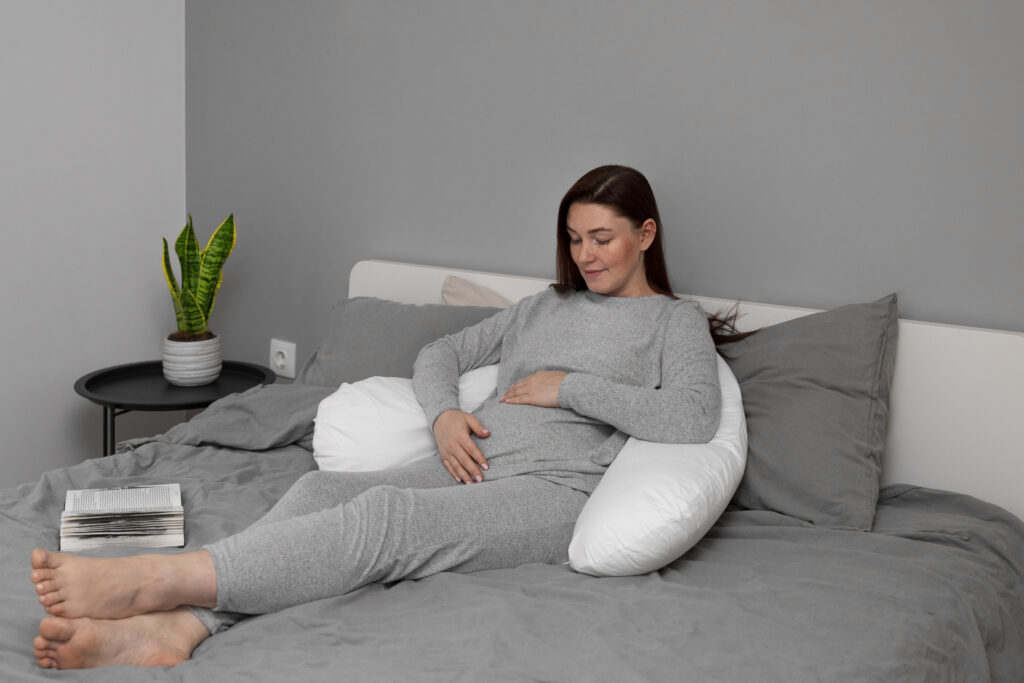
Acupuncture and Meditation
Studies have demonstrated that acupuncture can effectively relieve lower back pain during pregnancy.
Acupuncture, when pregnant, explores a form of Chinese medicine involving the insertion of thin needles into specific body locations. Always consult with a healthcare provider before considering acupuncture during pregnancy.
Meditation is a valuable stress-reduction technique that can be practiced anywhere and anytime. Various meditation methods exist, from silent meditation to guided audio programs. Meditation has been shown to activate a biological relaxation response, reducing the release of stress hormones, muscle tension, and pain.
Meditation is a simple way to lower stress no matter where you are. You can do it in different ways. An effortless way is to find a quiet spot, sit or lie down, and focus on breathing. You can do it in silence or listen to a guided meditation.
Women must be careful with medications to keep their babies safe when pregnant. Luckily, some medicines are safe to use during pregnancy. Always talk to your doctor before taking any medicine, including supplements, vitamins, or over-the-counter drugs.
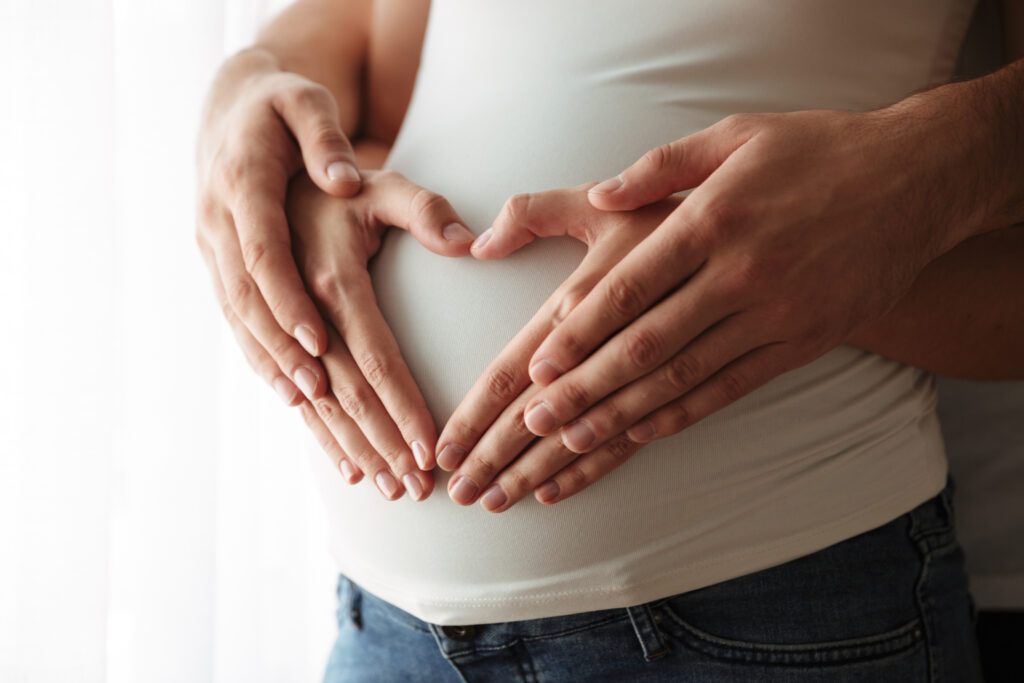
When to Seek Medical Attention
While it’s typical to have some back pain during pregnancy, sure signs require you to seek immediate medical help. Get in touch with a healthcare provider if you encounter:
- Severe back pain
- Persistent back pain lasting more than two weeks
- Back pain accompanied by worsening abdominal cramping
- Pain or difficulties with urination
- Numbness or tingling in the legs
- Vaginal bleeding
- Abnormal vaginal discharge
- Fever and chills
In summary, back pain in the lower part of the spine while pregnant is frequent and can usually be controlled. If you recognize the signs, know what causes it, and the best ways to treat it, you can do things to feel better and have a healthier pregnancy. Talk to a healthcare provider for advice and treatment for your unique situation.
Contact us for further assistance managing your lower back pain during pregnancy. Our team specializes in providing the best physical therapy services, and we can help you create a custom-made plan to alleviate your discomfort and improve your overall well-being during this transformative period.



